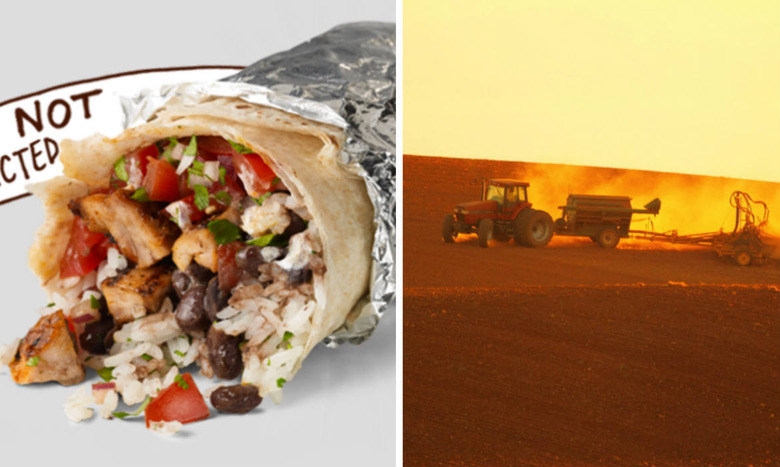Could The Chipotle Scandal Ruin Locally Sourced Produce For Everyone?
Before this fall, Chipotle was building up a carefully curated image of GMO-free, transparent, ethically-raised "food with integrity." Food with integrity, for Chipotle, largely meant sourcing from smaller farms that were compliant with its high standards. After hundreds of people were sickened from eating at Chipotle across America this fall, it's likely that the "Food with integrity" slogan is being called into question, but not just for Chipotle itself.
According to CNBC, the locavore movement that had just started to become popular with restaurant chains might experience a setback because it's easier to guarantee that your customers won't get sick when you source from one or two large factory farms instead.
"No good deed goes unpunished," celebrity chef Joe Bastianich told CNBC. "These are viruses that are transmitted because the produce is real. Because it comes from the earth — the dirt. It's not grown in some lab, in some vaporless environment. It's real stuff. And that is both a positive and a negative."
Approximately 10 percent of Chipotle's produce this past year was sourced from local farms.
But the changes just keep on coming: Multiple chain restaurants, including Subway, Wendy's Panera, and McDonald's, have committed to using cage-free eggs, and in some cases, cleaner ingredients. According to experts, restaurants need to search for that "sweet spot" between sourcing organic, local food and making sure each ingredient is safe and compliant with health standards.
"There are two things going against these local supply chains," John Gray, associate professor of operations at The Ohio State University's Fisher College of Business told CNBC. "My research has shown that larger firms do seem to have more consistent compliance [with food safety standards]. Instead of dealing with one firm, dealing with a hundred firms does increase risk."
